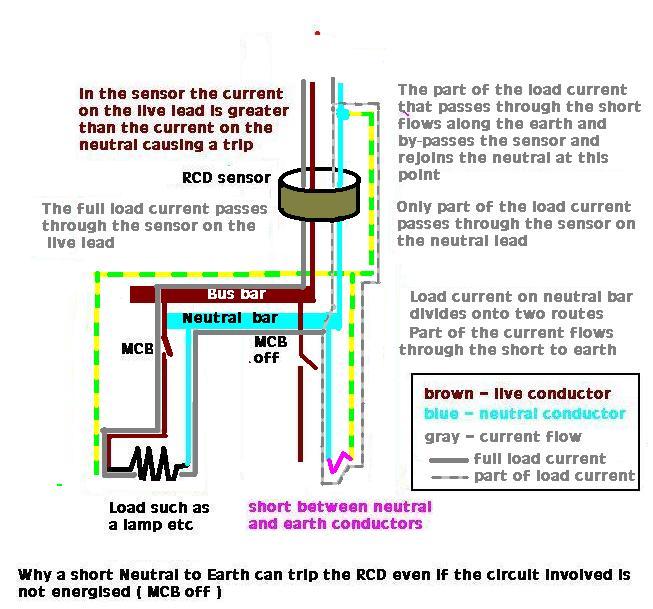I mentioned in another thread that I had a rewire done last year and my electrician had done a few things that in hindsight appear a bit odd. I've got two other electrical issues too, and just wanted to run these past the people on here. I apologise in advance if the terminology I'm using here is incorrect, but hopefully you can understand it.
1) We are renovating the entire house. This involves having to remove sockets and switches quite a lot, and then to re-wire them when the plasterer has finished. I do this myself. Obviously, I switch off the MCB relevant to the circuit I'm working on when I do this. However, I notice that I will still occasionally trip the RCD that controls the bank of MCBs that the circuit I am working on is on. E.g. I've got on RCD that controls upstairs lights, downstairs sockets and some other stuff; and another that controls downstairs lights and upstairs sockets. There is then the Big Switch that controls the two RCDs. I had to put the sockets back in the lounge the other day after the plasterer finished and the walls were painted. I turned off the MCB for the downstairs ring circuit, tested it was dead and went to work, but I still tripped the RCD. The upstairs lights went off, the downstairs lights stayed on. It doesn't always happen, but I've noticed that it almost always happens when I have to cut the cables, even if it is just a few mm.
I assume that this shouldn't be happening? Is there any reason why it is happening?
2) The light the dining room occasionally blinks, and often dims a bit all on its own. It's irritating. I assumed that it was because there was some loose connection in the ceiling rose, which was left hanging from the ceiling (rather than fixed to it) for about 6 months as we renovated, but it's all fixed in place now and I had a check of the wires and they are all tightly fixed.
Again - I assume this should not be happening? Is there any reason why it is happening?
Thanks for your help with this, I really appreciate it. I did try to google it, but couldn't find anything UK-specific.
1) We are renovating the entire house. This involves having to remove sockets and switches quite a lot, and then to re-wire them when the plasterer has finished. I do this myself. Obviously, I switch off the MCB relevant to the circuit I'm working on when I do this. However, I notice that I will still occasionally trip the RCD that controls the bank of MCBs that the circuit I am working on is on. E.g. I've got on RCD that controls upstairs lights, downstairs sockets and some other stuff; and another that controls downstairs lights and upstairs sockets. There is then the Big Switch that controls the two RCDs. I had to put the sockets back in the lounge the other day after the plasterer finished and the walls were painted. I turned off the MCB for the downstairs ring circuit, tested it was dead and went to work, but I still tripped the RCD. The upstairs lights went off, the downstairs lights stayed on. It doesn't always happen, but I've noticed that it almost always happens when I have to cut the cables, even if it is just a few mm.
I assume that this shouldn't be happening? Is there any reason why it is happening?
2) The light the dining room occasionally blinks, and often dims a bit all on its own. It's irritating. I assumed that it was because there was some loose connection in the ceiling rose, which was left hanging from the ceiling (rather than fixed to it) for about 6 months as we renovated, but it's all fixed in place now and I had a check of the wires and they are all tightly fixed.
Again - I assume this should not be happening? Is there any reason why it is happening?
Thanks for your help with this, I really appreciate it. I did try to google it, but couldn't find anything UK-specific.


